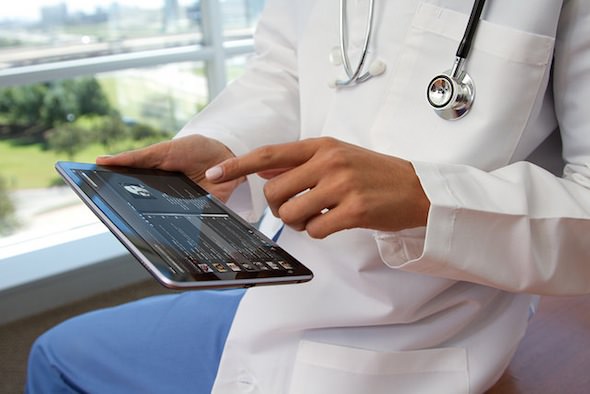Hospitals Are Mining Patients’ Credit Card Data
Medical centers are jumping aboard the bandwagon of privacy invasion as they buy data on millions of patients both to anticipate when they'll get sick and for their own financial purposes.
Medical centers are jumping aboard the bandwagon of privacy invasion as they buy data on millions of patients both to anticipate when they’ll get sick and for their own financial purposes.
Shannon Pettypiece and Jordan Robertson describe the development at Bloomberg Businessweek:
Imagine getting a call from your doctor if you let your gym membership lapse, make a habit of buying candy bars at the checkout counter, or begin shopping at plus-size clothing stores. For patients of Carolinas HealthCare System, which operates the largest group of medical centers in North and South Carolina, such a day could be sooner than they think. Carolinas HealthCare, which runs more than 900 care centers, including hospitals, nursing homes, doctors’ offices, and surgical centers, has begun plugging consumer data on 2 million people into algorithms designed to identify high-risk patients so that doctors can intervene before they get sick. The company purchases the data from brokers who cull public records, store loyalty program transactions, and credit card purchases.
Information on consumer spending can provide a more complete picture than the glimpse doctors get during an office visit or through lab results, says Michael Dulin, chief clinical officer for analytics and outcomes research at Carolinas HealthCare. The Charlotte-based hospital chain is placing its data into predictive models that give risk scores to patients. Within two years, Dulin plans to regularly distribute those scores to doctors and nurses who can then reach out to high-risk patients and suggest changes before they fall ill. “What we are looking to find are people before they end up in trouble,” says Dulin, who is a practicing physician.
But there are concerns of abuse and self-interest on the part of hospitals:
Many patients and their advocates are voicing concerns that Big Data’s expansion into medical care will threaten privacy. “It is one thing to have a number I can call if I have a problem or question; it is another thing to get unsolicited phone calls. I don’t like that,” says Jorjanne Murry, an accountant in Charlotte who has Type 1 diabetes and says she usually ignores calls from her health insurer trying to discuss her daily habits. “I think it is intrusive.”
… While some patients may benefit from data collection, hospitals also have a growing financial stake in knowing more about the people they care for. Under the Patient Protection and Affordable Care Act, known as Obamacare, hospital pay is becoming increasingly linked to quality metrics rather than the traditional fee-for-service model in which hospitals are paid based on the numbers of tests or procedures they perform. As a result, the U.S. has begun levying fines on hospitals that have too many patients readmitted within a month and rewarding hospitals that fare well against clinical benchmarks and on patient surveys.
Read more here.
— Posted by Alexander Reed Kelly.
Your support matters…Independent journalism is under threat and overshadowed by heavily funded mainstream media.
You can help level the playing field. Become a member.
Your tax-deductible contribution keeps us digging beneath the headlines to give you thought-provoking, investigative reporting and analysis that unearths what's really happening- without compromise.
Give today to support our courageous, independent journalists.






You need to be a supporter to comment.
There are currently no responses to this article.
Be the first to respond.